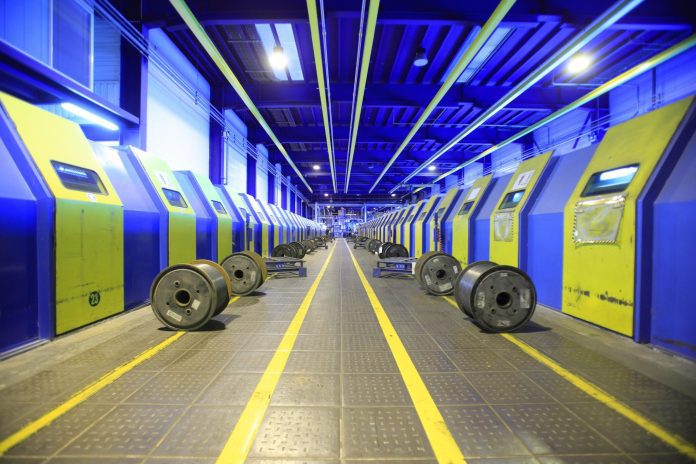The “largest private industrial 5G network in Europe” has opened in Calais, in France, using 59 small cell antennas to cover a 50,000 square-metre production site belonging to Alcatel Submarine Networks (ASN), the optical submarine division of telecoms vendor Nokia. The Finnish firm has supplied the network; it has worked with mobile operator Iliad and enterprise service provider Free Pro, both part of Iliad Group, plus France-based Industry 4.0 consultancy and integration specialists Sopra Steria and BSCA.
There is no word in a press statement on its spectrum usage; Iliad’s involvement suggests some provision from the public operator, but French regulator Arcep has started to open the 3.8-4.0 GHz band for private 5G networks, and Nokia has been engaged variously with early enterprise-owned private networking projects in France. The installation took more than two years to develop and integrate, said Nokia. It covers 11 buildings “as well as the loading docks”, it said. The small cells comprise “57 indoor emission points and two outdoor emission points”.
The project is described as a “key element” and “concrete step in ASN’s Industry 4.0 initiative to modernise its industrial processes, optimise operational performance, and improve working conditions for staff. ASN wants to “combine virtual and real environments… to interconnect… purchasing, procurement, logistics, production, maintenance, supervision [and so on]”. It is pursuing a number of industrial IoT practices and applications from the outset, said Nokia.
These are listed as: digitisation of industrial processes (“dematerialisation of all procedures”); laser sensors on cable storage tanks to manage fill-levels (“availability monitoring”); an energy consumption monitoring system in factory buildings (“energy resource management and optimisation”); connected glasses for remote maintenance support in workshops; and predictive maintenance (“analysis of production incidents [relating] to different equipment”). These work items were showcased at the opening of the network, attended by all parties this week.
ASN claims more than 700,000 kilometres of optical submarine systems worldwide – “enough to circumnavigate the globe 17 times”. A statement said: “Based on a secure, high-speed and reliable network, the use of 5G will improve industrial processes based on the automatic collection and processing of factory data and accelerate the integration of IoT in industrial production. Predictive algorithms will facilitate the anticipation of production and the efficient management of the storage of manufactured cables, a critical issue for the factory.”

